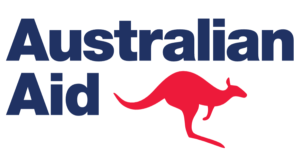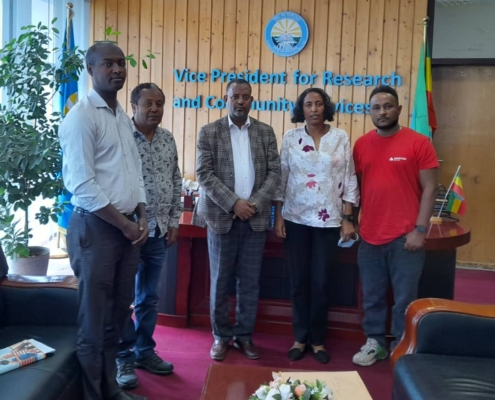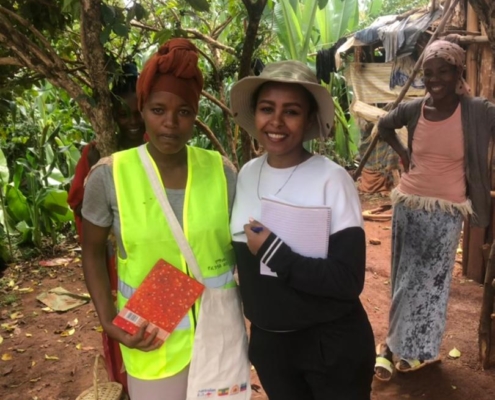Improving Newcastle disease control program in villages of Ethiopia in support of “Yelemat Terufat” initiative
Ethiopia is currently beset with internal struggles exacerbated by climate and food insecurity issues. As a step in addressing these the Ethiopian Government is pushing forward with Yelemat Terufat – a four-year initiative that aims to boost productivity and production of dairy, eggs, chicken and honey and related hive products. This is much needed and increasingly difficult to implement in equal measures.
In that context Kyeema Ethiopia Country Director, Dr Tadiose Habte called together a workshop of key stakeholders and Kyeema experts in Addis Ababa last month to tackle improving Newcastle disease control programs in villages of Ethiopia in support of “Yelemat Terufat”.
Stakeholders included representatives from organisations such as the National Veterinary Institute (NVI), National poultry and national animal health research programs of the Ethiopian Institute of Agricultural Research, representatives from the HERD project, Mercy Corp, Oromia Regional State Livestock Director, Sidama Regional State Animal Heath head, animal health expert representatives of Aleta Chuko woreda.
Speakers such as Dr Wubishet Zewdu – Lead executive of Animal Health and Veterinary Public Health in Ministry of Agriculture (MoA), Mrs. Tsegereda Fikadu Lead executive of Livestock and Fisheries development in MoA, and Kyeema’s Africa regional manager, Dr Rosa Costa, a livestock and Newcastle disease specialist, joined Dr Habte and key collaborators from government, universities, and development agencies to engage on the Newcastle disease program including, importantly, tackling challenges and learnings on inclusion and empowerment of people with disabilities in addressing Newcastle disease and other poultry development initiatives.
“Yelemat Terufat” translates to “a legacy to fill the plate” in Amharic, reflecting the initiative’s focus on empowering local residents to take charge of their poultry farming practices. The meeting discussed the practicalities and principles of this in the face of increasing threats and constraints and confirmed the Kyeema approach, fostering education and awareness to equip villagers with the knowledge and tools necessary to combat Newcastle disease effectively is having an impact. But the workshop also recognised that the success of “Yelemat Terufat” lies in its collaborative spirit and the importance of expanding Kyeema’s approach at national level. Kyeema Foundation is working hand-in-hand with local authorities, veterinary professionals, and community leaders to create a united front against Newcastle disease. By combining expertise and resources, the initiative is ensuring a far-reaching impact across diverse villages.
Kyeema Foundation’s involvement extends beyond the implementation of Newcastle disease control measures. Through workshops, training sessions, and informational campaigns, villagers are learning about preventive measures, vaccination schedules, and effective biosecurity practices. By imparting knowledge, Kyeema is fostering a sustainable model where communities are not just recipients but active participants in safeguarding their poultry health.
We acknowledge the support of the Australian Government through the Australian NGO Cooperation Program (ANCP) for this project.





